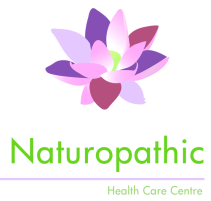|
Perimenopause and your thyroid.
Perimenopause is the phase before menopause. It can begin as early as in your thirties, but usually start between ages 40 and 45. You might start noticing that your period is changing- it might be longer or shorter, more frequent or skipping cycles, more or less flow, as well as symptoms that comes with hormonal changes. Perimenopause can last a few months upto a few years. Once you have had no period for 12 months, the perimenopausal phase is complete and menopause has started. Some women struggle more than others during perimenopause. Troublesome symptoms may include hot flashes, irregular periods, breast tenderness, fibrocystic or lumpy breasts and decreased libido. These symptoms are often like the ones you suffered from when you had PMS. Less obvious symptoms that seem unrelated to the female system can also be related to hormonal imbalances such as weight gain/increased fat storage (especially in the thighs, hips, and breasts), water retention, fatigue, brain fog, sleep difficulties, mood swings, insomnia, headaches, hair loss, and joint pain. Women are very likely to develop a thyroid condition during perimenopause, or experience a worsening of thyroid symptoms, because of the hormonal changes that are happening during this time. Oestrogen dominance is the main culprit in causing perimenopausal and thyroid symptoms. Although oestrogen and progesterone both decline during perimenopause, progesterone declines at a much faster rate, therefore causing progesterone to be lower in comparison to oestrogen, called relative oestrogen dominance. In a nutshell, this means that sometimes a woman may have normal progesterone, but may have symptoms of progesterone deficiency due to a hormonal imbalance caused by estrogen levels that are too high. Other times, women are symptomatic due to unopposed estrogen relative to progesterone, meaning that they have normal estrogen and low progesterone. If you have estrogen dominance, your conversion from T4 to T3 will not be optimal, leading to thyroid symptoms. Everyday events that can contribute to the increased levels of oetrogen are oral contraception pills, decreased detoxification, estrogen-mimicking toxins (also called xenoestrogens), gut issues, stress, and thyroid conditions. Low Progesterone SymptomsProgesterone is called "the happy hormone" and plays an important role in our mood, sleep, and bone health. It is also important for fertility. It is helpfull in reducing hot flushes and night sweats. Low progesterone leads to low thyroid levels. Here are some common symptoms of low progesterone:
The following supplements and advice can be used to boost progesterone naturally:
Progesterone is an important hormone during our fertile and childbearing years, but don't neglect your progesterone at any time during your lifeline as it will always play an important role in many bodily functions, not just for thyroid health. Dr Marike de Klerk
0 Comments
Leave a Reply. |
AuthorsDr. Marike de Klerk Categories
All
|
All rights reserved Naturopathic Health Care Centre
ADDRESS: No 13 Hazelwood Road, Hazelwood, Pretoria
TELEPHONE: 012 460 9216
PAIA Manua
Website design and digital marketing by Plan Me Pretty (PTY) Ltd
TELEPHONE: 012 460 9216
PAIA Manua
Website design and digital marketing by Plan Me Pretty (PTY) Ltd

 RSS Feed
RSS Feed